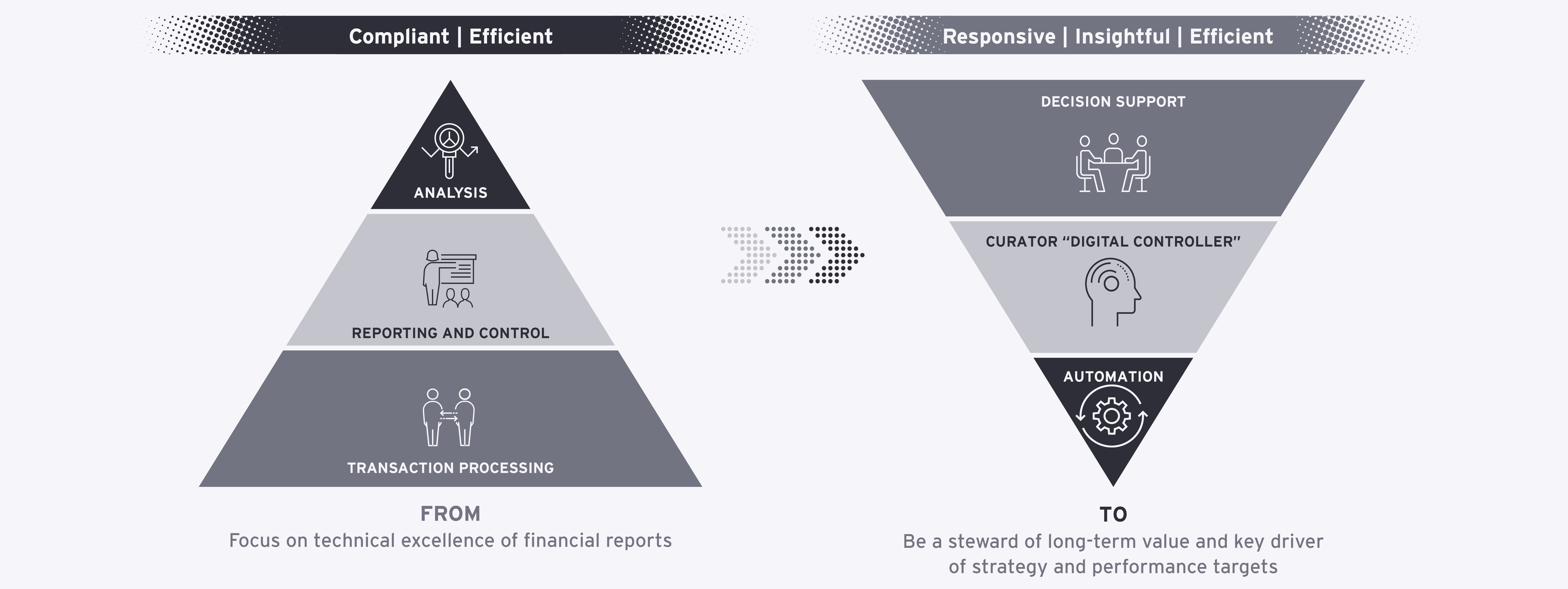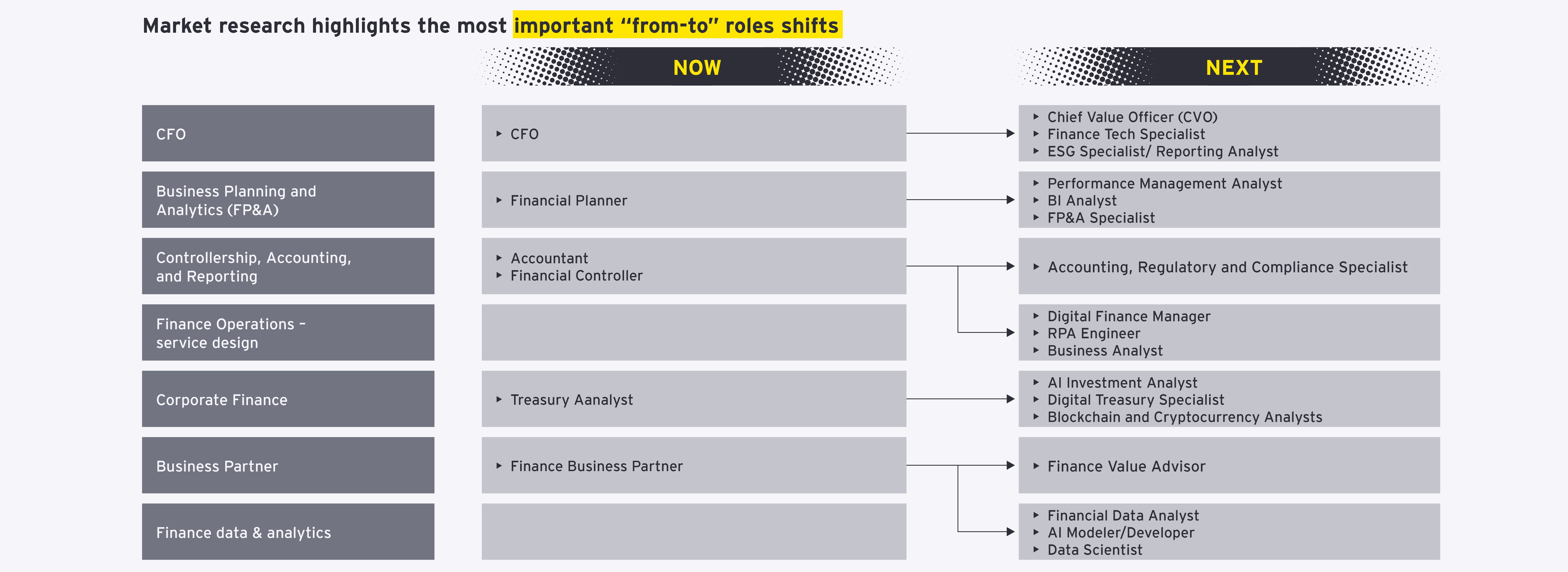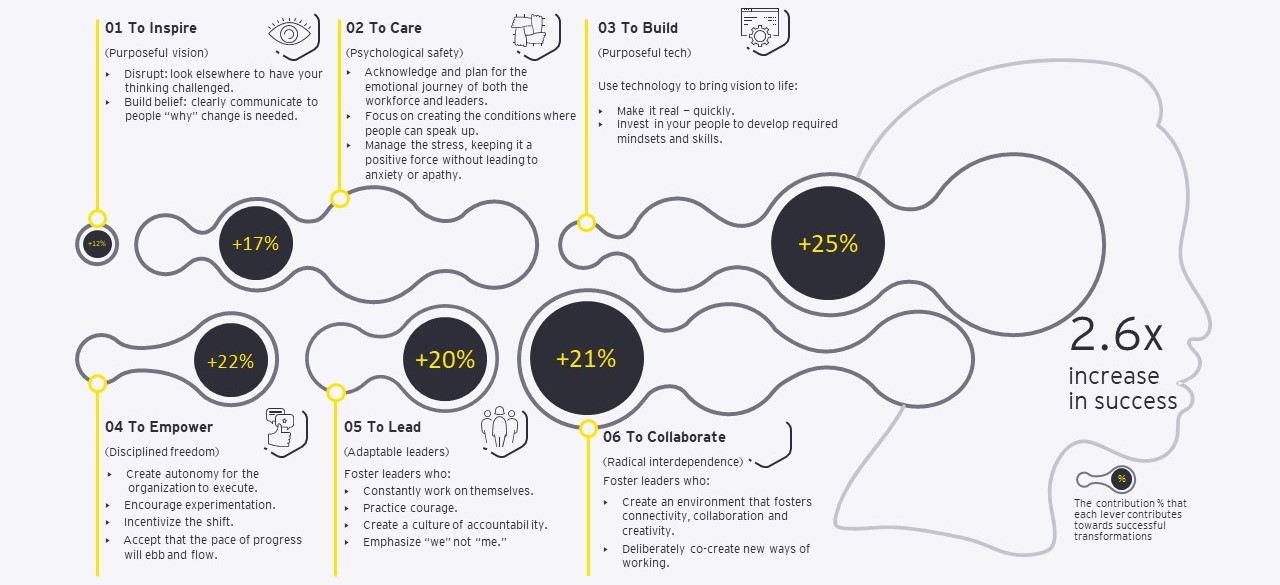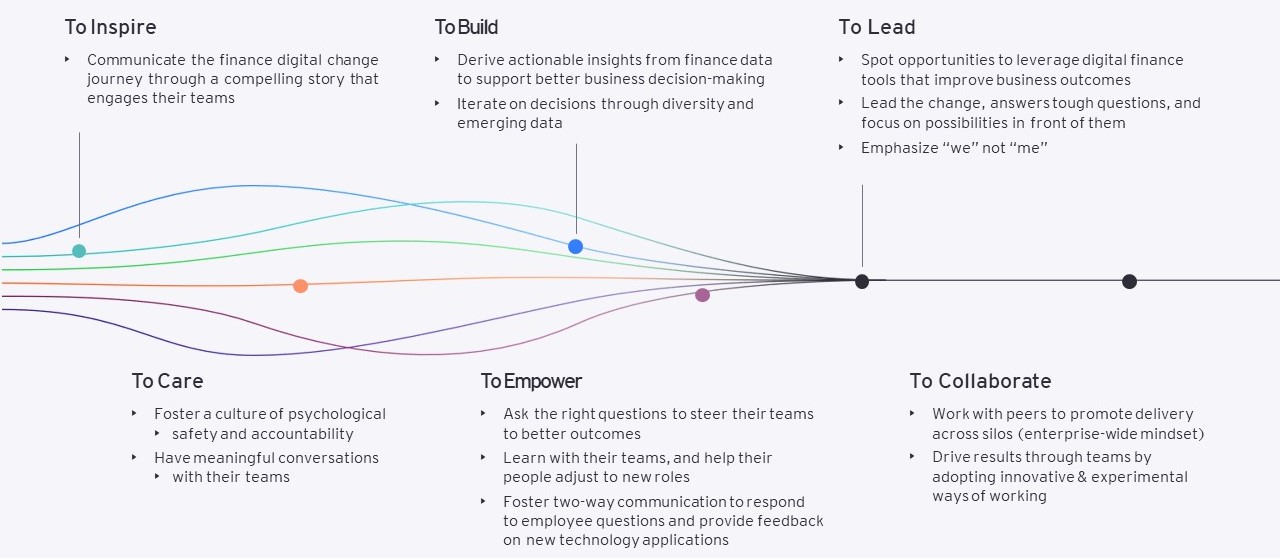How can you apply this thinking to evolve the role of finance to position your insurance business to succeed? At EY, we recommend considering three foundational steps:
1. Set a clear vision for the ideal future state of your function. What are the business goals? Which disruptive forces are most likely to influence finance as the business pursues sustainable, profitable growth? Knowing where you’re headed empowers you to reverse engineer the future state of your finance team to the big picture overall.
- At this stage, put humans at the centre of your approach by asking: How can finance evolve to foster collaboration, agility and innovation while adopting new ways of working?
2. Systematically assess and map current finance capabilities, structures, interactions and roles. As you work through this analysis, gaps and overlaps will begin to emerge. You can then channel this insight to sketch out the future-state roles and skills you’ll need for finance to succeed, with appropriate weighting in terms of capacity, and how these people will connect and interact through their work.
- At this stage, put humans at the centre of your approach by asking: How are roles and skills changing in the finance function — and how must they continue to change?
3. Design and implement a compelling future state you can work towards. The best action plans connect organizational structures, roles, capabilities, collective culture and individual behaviour. Success depends on your ability to weave these areas together in a human-centric framework. You want to think beyond finance systems, processes and procedures to create a vision capable of attracting and retaining talented people who are motivated by a purposeful mission
- At this stage, put humans at the centre of your approach by asking: How do we manage talent to maximize employee experience and business outcomes?






